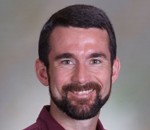 “We have met the enemy and he is us.” (Pogo)
“We have met the enemy and he is us.” (Pogo)
Manica Balasegaram makes a number of excellent points in his recent post, but his conclusion that “the system is broken” only addresses part of the problem. I read the piece at the MSF website on “Looking for alternative models” with interest, but I do not think that alternative business models alone will solve a fundamental conflict that is built into the very nature of who we are in the medical profession.
All of us in medicine (at least most of us, I hope!), see it as our calling to be about bringing some type of healing, relief of suffering, or comfort to those in need. All of us in medicine, too, need to make a living. The fundamental conflict is that to make a living in medicine, one has to depend on making money, in some way or another, off of another’s suffering.
Whether a GP in solo private practice, a healthcare system caring for a population of patients, or a pharmaceutical or medical device company seeking to run a business, in all cases the ability to remain financially viable, depends to some extent on making money off of someone’s else’s distress. The difference between learning a new procedure to use in practice, “because it’s a billable procedure”, and corporate profit-taking on new medicines, is in some ways only a matter of scale.
There is an exhortation in the epistle of Paul to the Philippians to “look not only to (one’s) own interests, but also to the interests of others,” but in reality this is exceptionally hard to live by. No matter how altruistic each of us hopes to be, we have a much easier time putting our own interests first, and this is even more true in medicine where the financial rewards can be handsome.
In most parts of the world, being a physician lets one have the opportunity for a life of relative financial success and comfort. While service and care for the poor are important professional goals, we in medicine have the opportunity to do that, from a position often of relative comfort—and that comfort is possible because we make money caring for the sick.
I would love to see the system change, I think it would be wonderful if economic models could be developed that would provide appropriate incentives for developing inexpensive, affordable means of care and disseminating them to those truly in need. I also know, however, that as a physician, my relative comfort in life comes from the exact same system of profit due to the sickness of others, that we can so easily decry in the pharmaceutical companies.
Better models may help us to an extent, but every one of us who makes a living in medicine, needs to be aware of our own place in a profession that, to an extent, puts a price on sickness and health. We have, indeed, found the enemy to be us—and to conquer that enemy requires not only systems change, but personal awareness of our dual allegiance to self and to patient, and personal transformation from who we are to who we hope to be.
Competing interests: “I declare that I have read and understood the BMJ Group policy on declaration of interests and I have no relevant interests to declare beyond a passion for learning from our history.”
William E Cayley Jr practises at the Augusta Family Medicine Clinic, teaches at the Eau Claire Family Medicine Residency, and is a professor at the University of Wisconsin, Department of Family Medicine.